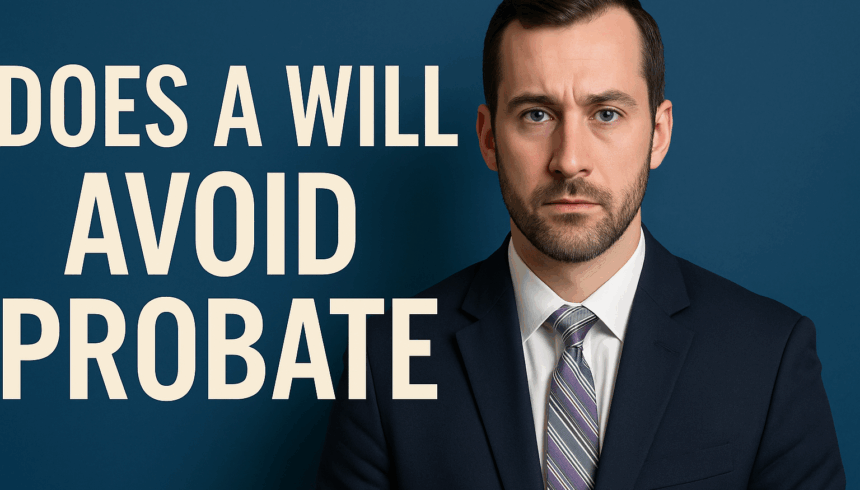
Before proceeding, please review the legal disclaimer.
You’ve probably heard it before: “Just write a will and your family will avoid probate.”
If only it were that simple.
In reality, having a will does not avoid probate—at least not in Texas. In fact, a will is often the very reason the estate goes to probate in the first place.
Let’s break this down.
Probate is the legal process of:
Validating the will
Appointing an executor
Paying off debts and taxes
Distributing assets to heirs
In Texas, probate is required if someone passes away with a will and owns assets solely in their name.
So if your goal is to avoid probate, a will alone won’t cut it.
A valid will:
Tells the court how you want your property distributed
Names an executor to carry out your wishes
Can name guardians for minor children
But it still has to go through probate for the court to recognize and enforce it.
It’s a common misunderstanding. Many people assume that writing a will keeps everything “out of court.”
But in Texas, the court needs to see and approve the will before anything can happen—unless you’ve set up other planning tools.
Assets in a trust can pass directly to beneficiaries without court involvement.
Life insurance
Retirement accounts
Transfer-on-death (TOD) accounts
Payable-on-death (POD) bank accounts
If you own property jointly, it may pass automatically to the other owner.
A special kind of deed in Texas that allows property to pass outside probate.
“Ellen,” a Houston resident, had a detailed will. But because her house and bank accounts were in her name only, her kids still had to go through probate to transfer ownership.
Her neighbor, “James,” used a trust and named beneficiaries on all accounts. When he passed away, his estate avoided probate entirely.
Actually, yes. Probate:
Can resolve disputes legally
Offers creditor protection (with notice requirements and deadlines)
Gives a judge the authority to make decisions if there’s conflict
If everything is going smoothly, Texas also offers simplified probate options—especially for small or uncontested estates.
This notarized document makes it easier to admit the will without needing witnesses.
Don’t rely solely on the will if you can name beneficiaries elsewhere.
A lawyer can help combine strategies—like wills and trusts—for smoother outcomes.
At The Lange Firm, we help Texans:
Draft clear, legally sound wills and trusts
Avoid unnecessary probate hassles
Use deed planning, trusts, and designations to reduce court involvement
We’ll help you protect your legacy the smart way.
A will doesn’t avoid probate—it starts it.
But with smart planning, you can minimize probate—or skip it altogether. Ready to find the right strategy for your family? Contact The Lange Firm today to get started.
Follow our newsletter to stay updated.

2025- The Lange Firm all rights reserved.

Mr. Evan B. Lange is the attorney responsible for this website. | All meetings are by appointment only. | Principal place of business: Sugar Land, Texas.
The information you obtain at this site is not, nor is it intended to be, legal advice. You should consult an attorney for advice regarding your individual situation. We invite you to contact us and welcome you to submit your claim for review. Contacting us does not create an attorney-client relationship. Please do not send any confidential information to us until such time as an attorney-client relationship has been established.